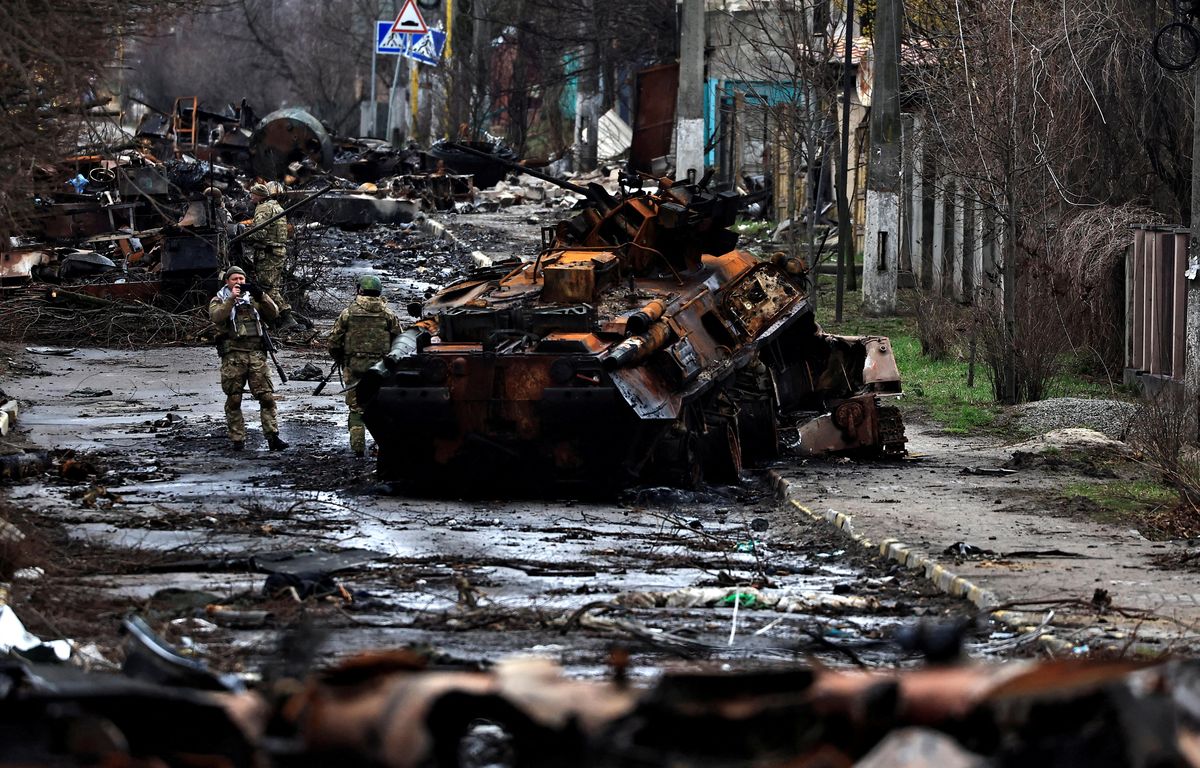EU sanctions loom over alleged Russian war crimes
After Russian forces withdrew from the outskirts of Ukraine's capital, President Volodymyr Zelensky’s government on Sunday accused them of committing war crimes by massacring civilians in the Kyiv suburbs of Bucha, Irpin, and Hostomel. Authorities are gathering evidence of the alleged atrocities to build a case against Russian officials at the International Criminal Court in The Hague, and former ICC chief prosecutor Carla del Ponte wants to issue an international arrest warrant for Putin. To convict, Ukrainians would need to show a pattern of deliberate targeting of civilians. Still, the carnage has convinced the EU to act: it is preparing a wave of fresh sanctions against the Kremlin. It's unclear what the new measures will be, but pressure is mounting on the bloc to finally target Russian oil and natural gas, which many EU states depend on for energy. Late Sunday, Zelensky appeared at the Grammys in a pre-taped message. "Our musicians wear body armor instead of tuxedos," he said, asking viewers to support Ukraine any way they can. Meanwhile, Russia-Ukraine peace talks may resume on Monday in Turkey, and Moscow is saying it’s not yet ready for face-to-face talks between Putin and Zelensky.
Orbán wins Hungarian election
Viktor Orbán has won a fourth consecutive term as Hungary’s prime minister after his ruling Fidesz Party captured another super majority in Sunday's parliamentary election. The result was better than expected for Fidesz. "We've won a victory so big ... you can certainly see it from Brussels," Orbán said in his election night speech. He was taking a classic swipe at the EU, which has clashed with the Hungarian government over the independence of courts and the media as well as LGBT rights (which were also on the ballot on Sunday). Brussels likewise resents Orbán's open admiration for Russian President Vladimir Putin and his refusal to send weapons to Ukraine despite (officially) condemning Russia's invasion. Orbán's victory is a big win for Putin, who now knows he'll keep at least one ally in the EU, which otherwise has done its utmost to punish Russia over the war. Looking ahead, Orbán's most immediate challenge will be convincing Brussels to unfreeze billions of euros in pandemic relief money to cover pre-election social spending.
Sri Lanka on the brink
Sri Lankans on Sunday defied a military-enforced state of emergency and a curfew to demand that President Gotabaya Rajapaksa step down amid the worst economic crisis in the country's history. Cops and soldiers fired water cannons and warning shots at protesters, who blame Rajapaksa for running out of foreign exchange reserves to pay for basic imports such as fuel, which recently forced authorities to turn off streetlights to save power. Hours later, the entire government resigned — except for the president and his brother Mahinda, the PM. Sri Lanka’s leader had previously said he's talking to China, India, and the IMF to get some relief for the country's nearly $7 billion in debt obligations for this year alone, but so far he's made little progress. More broadly, the crisis has enraged those already fed up with the concentration of power by Rajapaksa’s family and the wider political class, whom many Sri Lankans feel have done little to improve living standards in the South Asian island nation since the civil war ended in 2009. Will the people rise up to take out the Rajapaksas? If so, they won't be mobilizing on social media, because the government is blocking access to it.



















